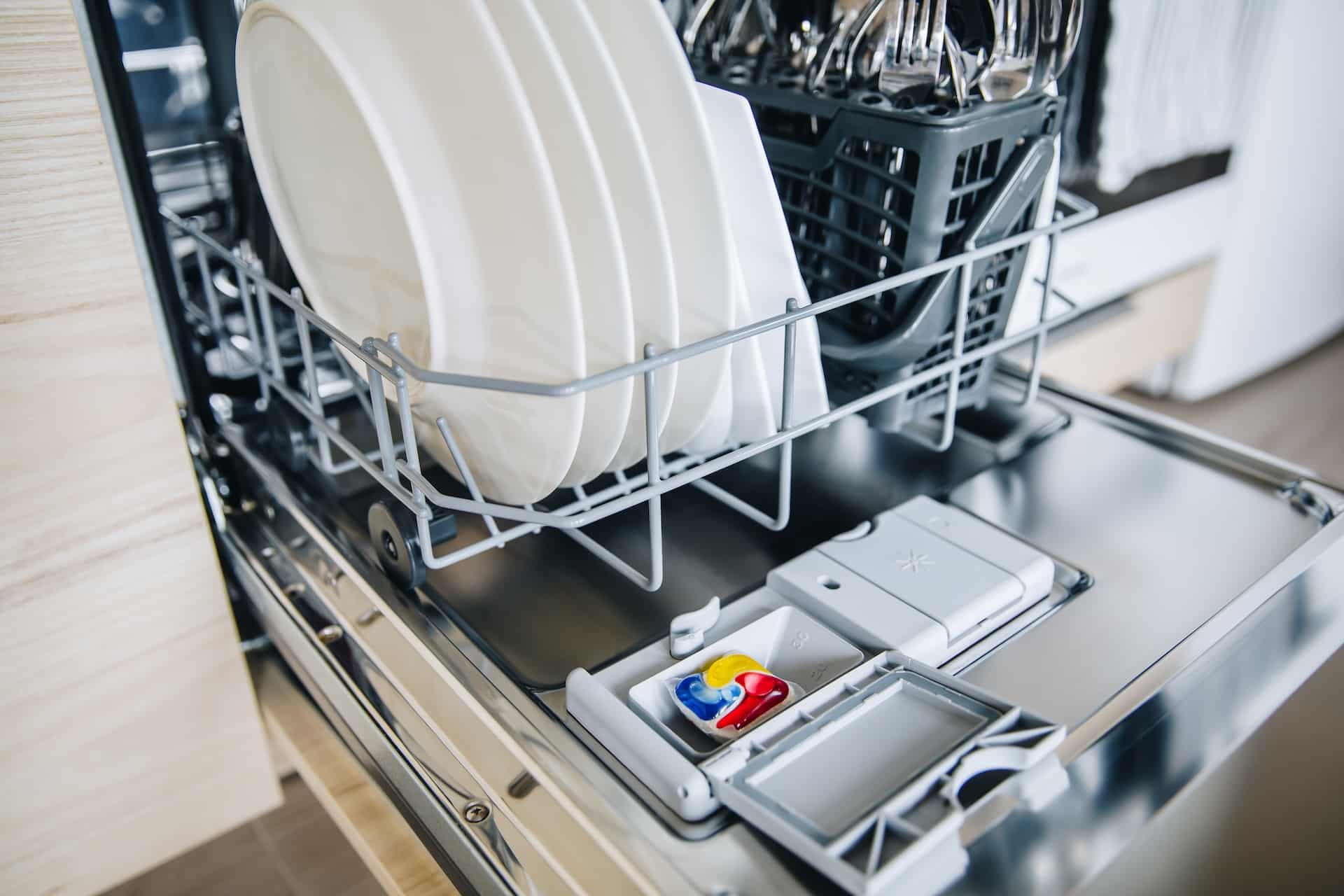Simple Tricks to Make Your Dishwasher Last Longer
A dishwasher is one of the hardest-working appliances in the kitchen. It saves time, cuts down on household chores, and keeps dishes sparkling clean with very little effort. Like any machine, however, it needs the right care to stay in top shape.
Without proper maintenance, your dishwasher can develop problems that lead to breakdowns or costly dishwasher repair. The good news is that a few simple habits can extend its life and keep it running efficiently for years.
Load It the Right Way
How you load your dishwasher has a big impact on its performance and longevity. Overloading the racks or stacking dishes incorrectly puts extra strain on spray arms, racks, and filters. It can also prevent water from circulating properly, leaving food residue behind.
- Place larger items such as pots and pans along the sides or back.
- Angle bowls and plates so that water can flow easily.
- Keep the spray arms clear to avoid them hitting dishes while spinning.
- Place cutlery with handles down to prevent rattling or blockages.
Taking an extra minute to load the dishwasher correctly will reduce wear and tear while improving wash results.
Scrape Before You Wash
Modern dishwashers are powerful enough to handle most food debris, but leaving heavy scraps on plates forces the filter and pump to work harder than necessary. This can lead to clogs, unpleasant smells, and even motor strain. A quick scrape into the bin before loading helps prevent these problems and makes cycles more efficient.
Keep the Filter Clean
The filter is one of the most overlooked parts of the dishwasher, yet it plays a key role in preventing food particles from recirculating onto clean dishes. When the filter gets clogged, it restricts water flow and increases pressure on the pump. Cleaning it once a week is usually enough for average households. Simply twist it out, rinse under warm water, and scrub with a soft brush if needed.
Run Hot Water Before Starting
If your kitchen tap takes a while to heat up, the first few litres entering the dishwasher may be cold. Starting a cycle with cold water forces the appliance to work harder to reach the right temperature. Running the tap until the water is hot before starting the dishwasher makes cycles more efficient and reduces stress on the heating element.
Use the Right Detergent
Not all detergents are the same. Using too much, or the wrong type, can create excess suds that strain the pump and leave residue on dishes. Always follow the manufacturer’s recommendations for detergent type and amount. If you live in a hard water area, consider adding rinse aid or a water softener to prevent mineral build-up inside the machine.
Don’t Ignore Strange Noises or Smells
A dishwasher that begins to make grinding, buzzing, or squealing sounds is often trying to tell you something. Likewise, bad smells that linger after a wash cycle usually mean debris is stuck somewhere in the system. Ignoring these early signs can lead to bigger problems down the line. If quick fixes like cleaning the filter or rearranging dishes don’t help, it is worth scheduling professional dishwasher repair before the issue worsens.
Check and Clean the Spray Arms
The spray arms are responsible for distributing water throughout the dishwasher. Over time, their small holes can become clogged with food particles, grease, or mineral deposits. This not only reduces cleaning efficiency but also puts pressure on the motor as it struggles to pump water. Remove the arms every few months and rinse them thoroughly. A toothpick can be used to clear stubborn blockages.
Inspect the Door Seals
The rubber seals around the door keep water from leaking out during a wash cycle. If they crack or wear down, leaks can occur, leading to water damage in your kitchen and extra strain on the appliance. Wipe the seals regularly with warm soapy water to prevent grease build-up, and check for signs of damage. Replacing worn seals is a simple job that can add years to your dishwasher’s life.
Run a Cleaning Cycle
Even with regular use, dishwashers benefit from an occasional deep clean. Running a cleaning cycle with a dishwasher cleaner or a cup of white vinegar helps break down grease, soap scum, and mineral deposits that accumulate over time. This not only prevents odours but also keeps internal components running smoothly. Aim to do this once a month for the best results.
Avoid Constant Short Cycles
Quick or eco cycles are handy for lightly soiled dishes, but relying on them exclusively can leave behind residue that builds up over time. Every so often, run a full hot cycle to give the machine a thorough clean-out. This helps flush the system and ensures the heating element, pump, and spray arms are working properly.
When to Call for Professional Help
Even with the best care, no appliance lasts forever. If your dishwasher stops cleaning properly, leaks water, or makes persistent loud noises, it may be time for expert attention. A professional dishwasher repair technician can quickly diagnose the problem and replace faulty parts before they cause more damage. Getting small issues fixed promptly is usually much cheaper than replacing the entire machine.
Final Thoughts
Your dishwasher is a valuable part of your home, saving you hours of work each week. By following simple habits like scraping dishes, cleaning filters, and checking seals, you can keep it running smoothly and avoid unnecessary breakdowns.
When problems do arise, don’t ignore them. Timely dishwasher repair will extend the life of your appliance and keep it performing at its best. With just a little care, your dishwasher can remain one of the most reliable helpers in your kitchen for many years.








